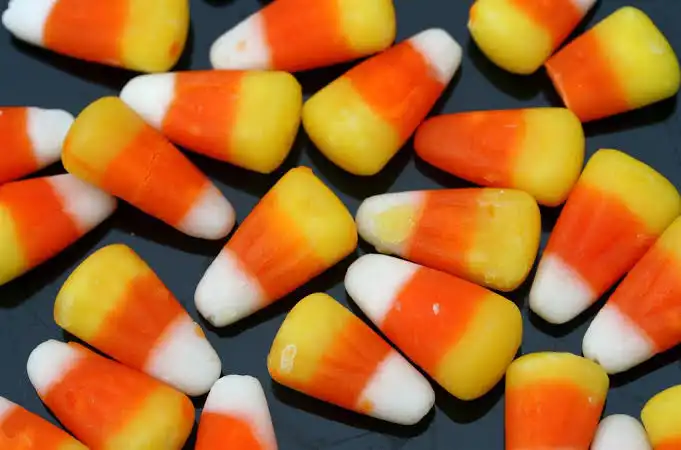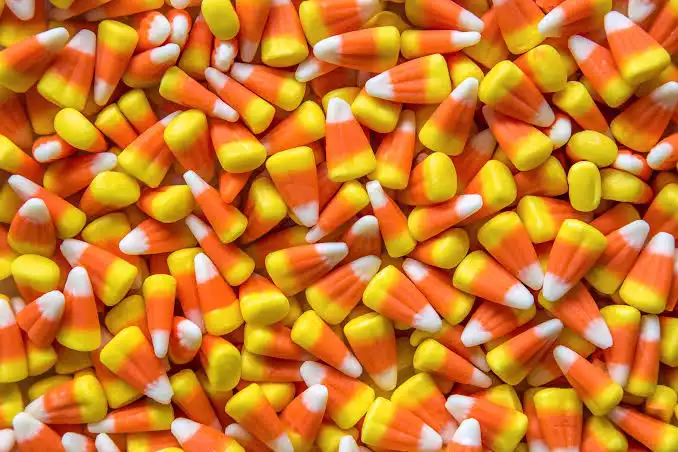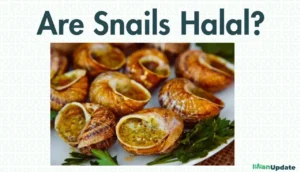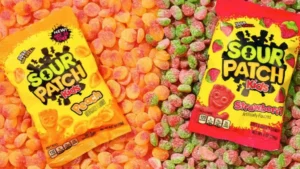Is Candy Corn Halal For Muslims To Eat?

As Halloween approaches, candy corn becomes a staple in homes across North America, with its distinctive triangular shape and bright colors appealing to children and adults alike.
But for Muslim parents, a critical question emerges: Is candy corn halal? Understanding what goes into this popular treat is essential for those who adhere to a halal diet, and this article aims to break down everything you need to know.
Did you know that despite its name, candy corn contains no actual corn? The name may be deceiving, as it doesn’t taste or resemble corn in any way.
Instead, this candy is made up of a variety of ingredients, some of which raise concerns for those following a halal lifestyle. With its widespread popularity, especially around Halloween, it’s worth examining whether Muslims should avoid candy corn or if halal alternatives exist.
Is Candy Corn Halal?
Candy corn is typically not considered halal because it often contains gelatin, which is usually derived from non-halal sources (such as pork). However, if the candy corn is made without gelatin or any non-halal ingredients, it may be acceptable for consumption.
Understanding Candy Corn Ingredients
Candy corn’s unique texture and shape are made possible by a combination of sugar, flavorings, and certain key ingredients that give it its structure.
Unfortunately, some of these ingredients are not permissible under Islamic dietary laws. The two main ingredients that raise concerns are gelatin and confectioner’s glaze.
Gelatin is often derived from animal sources, particularly pork, which is haram (forbidden) in Islam. While gelatin itself is colorless and tasteless, it plays a crucial role in holding the candy together and providing its chewiness.
On the other hand, confectioner’s glaze, also known as shellac, is made from secretions of the lac insect, which many scholars have ruled as impermissible because insects are considered impure in Islam.
Thus, many brands of candy corn are automatically disqualified from being halal due to the inclusion of these ingredients. However, there are ways to identify candy that could be halal, which we’ll discuss shortly.
READ ALSO: Are Sun Chips Halal in the US & Canada?
Why Most Candy Corn Is Not Halal
Most of the popular candy corn brands in North America, such as Brach’s, Jelly Belly, and Cottage County, rely on pork-based gelatin or confectioner’s glaze (shellac) to achieve the texture and finish that candy corn is known for. Pork-based gelatin is especially problematic for Muslims, as consuming any part of a pig is strictly forbidden in Islamic law.
Additionally, confectioner’s glaze, while not derived from pork, is considered haram by many Islamic scholars due to its origin from insects. The reasoning is that insects do not have flowing blood and are classified as impure, making products derived from them impermissible for consumption.
The combination of these two ingredients makes most candy corn non-halal. However, it’s important to recognize that not all brands follow the same recipe. Some may use plant-based or halal-certified alternatives to gelatin and confectioner’s glaze.
How Gelatin Impacts the Halal Status of Candy Corn
Gelatin is one of the most common ingredients used in candy making, but it’s also one of the most problematic for Muslims.
Derived from animal collagen, it can come from a variety of sources, including pigs, cows, and fish. For gelatin to be halal, it must be sourced from animals that were slaughtered according to Islamic law or from plant-based or synthetic alternatives.
The issue with candy corn lies in the fact that many companies, like Brach’s, use pork gelatin, which automatically makes their products haram. Even if the product does not contain pork, gelatin derived from improperly slaughtered beef would also be considered haram.
To ensure candy corn is halal, the gelatin must come from one of the following sources:
- Halal-certified beef gelatin (from animals slaughtered according to Islamic guidelines)
- Fish gelatin
- Vegetarian or plant-based gelatin

Is Brach’s Candy Corn Halal?
Unfortunately, Brach’s Candy Corn is not halal. The company uses pork gelatin in its production, as confirmed by the manufacturer, Ferrara Candy Company. According to their customer service, pork gelatin holds the product better than other types of gelatin, and they have no plans to change their formula.
Here’s a list of ingredients for Brach’s Candy Corn:
- Sugar
- Corn Syrup
- Confectioner’s Glaze (Shellac)
- Salt
- Dextrose
- Gelatin (Pork)
- Sesame Oil
- Artificial Flavor
- Honey
- Yellow 6, Yellow 5, Red 3
The two main non-halal ingredients here are gelatin (derived from pork) and confectioner’s glaze (shellac, derived from insects). For these reasons, Brach’s Candy Corn is not suitable for those who follow a halal diet.
Is Jelly Belly Candy Corn Halal?
No, Jelly Belly’s Candy Corn is also not halal. While it does not contain gelatin, it uses confectioner’s glaze, which has been declared haram by many Islamic scholars. Confectioner’s glaze is derived from insects, and while it serves as a coating for the candy, it disqualifies the product from being halal.
Are There Halal Alternatives to Candy Corn?
Yes! While most mainstream candy corn brands are not halal, some alternatives exist that either use plant-based or halal-certified ingredients. Be sure to carefully read ingredient labels, particularly looking for gelatin sources and any mention of shellac or confectioner’s glaze.
How to Make Halal Candy Corn at Home
If you’re struggling to find halal candy corn in stores, you can make your own! Here’s a simple recipe for halal candy corn:
Ingredients:
- 1 cup powdered sugar
- 1/4 cup powdered milk
- 1/8 teaspoon salt
- 1/2 cup sugar
- 1/4 cup butter
- 1/4 cup corn syrup
- 1/2 teaspoon halal vanilla extract
- Halal food coloring (yellow, orange, white)
Instructions:
- In a bowl, combine powdered sugar, powdered milk, and salt, and mix well.
- In a saucepan, combine sugar, butter, and corn syrup over medium heat. Stir until the mixture begins to boil.
- Reduce the heat and stir continuously for about 4 minutes.
- Remove from heat and add the vanilla extract.
- Gradually mix the dry ingredients into the wet mixture using a wooden spoon until a dough forms.
- Divide the dough into three equal portions. Add different food coloring to each portion (yellow, orange, and white) and knead until fully incorporated.
- Roll each portion into long ropes and flatten slightly. Layer the ropes together, and then slice the candy into triangular shapes.
- Allow the candy to cool and harden before enjoying!
Store your homemade halal candy corn in an airtight container for up to a week.
3 Halal Alternatives to Candy Corn
If making your own candy corn isn’t for you, don’t worry! There are plenty of halal-certified candies that you can enjoy instead. Here are three popular options:
- Twizzlers Twisters Strawberry Flavored Candy – These do not contain gelatin or any other haram ingredients, making them a great choice for those following a halal diet.
- Sour Patch Kids – Known for their tangy flavor, these gummies are made without gelatin, making them halal-friendly.
- Swedish Fish – Another popular gummy candy that is free of animal-derived ingredients and suitable for halal diets.
Conclusion
While most candy corn brands on the market are not halal due to the use of pork gelatin and confectioner’s glaze, there are ways for Muslims to still enjoy sweet treats.
Whether by making your own halal candy corn at home or by choosing halal-certified alternatives, you can ensure that your family celebrates Halloween or any other occasion while adhering to Islamic dietary guidelines.






